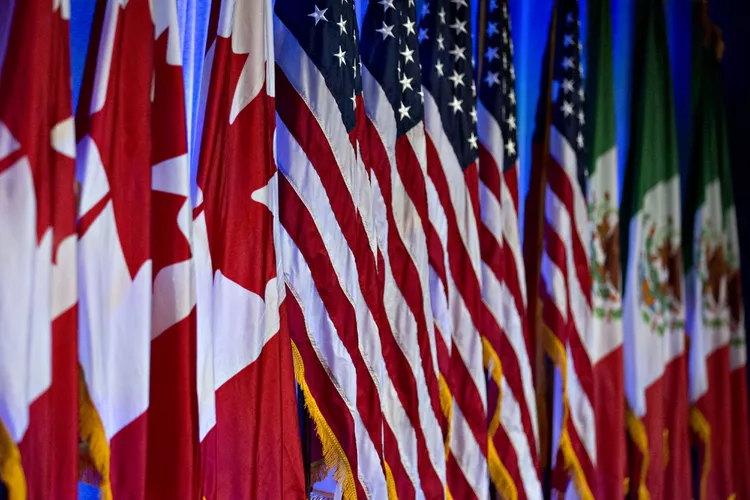The United States, Mexico, and Canada are gearing up for high-stakes renegotiations over the U.S.-Mexico-Canada Agreement (USMCA). This review could reshape the region’s trade framework and potentially open the door to new tariffs and economic friction.
The review, required before July 2026, comes six months after President Donald Trump’s “Liberation Day” tariffs rewired U.S. trade policy and strained relations with key partners. While the USMCA was meant to ensure stability for 16 years, Trump’s return to office has reignited debates over trade fairness, manufacturing, and migration.
“How the three nations navigate this moment will shape the region’s economic future for decades,” wrote analysts from the Center for Strategic & International Studies (CSIS).
Focus Areas: Autos, Agriculture, and Energy
Upcoming negotiations are expected to target auto manufacturing rules, agricultural supply management, and intellectual property protections. The U.S. is pressing for stricter “rules of origin,” requiring more car parts to be made domestically — a move experts warn could push up consumer prices.
The U.S. has also accused Canada of restricting access to its dairy market and Mexico of ignoring intellectual property laws and favoring state-run energy companies. Georgetown University’s Marc Busch warned that changes to USMCA compliance rules could “mean a whole lot of tariffs.”
Economic Stakes
Mexico and Canada together make up nearly 30% of total U.S. trade, compared with less than 8% for China, underscoring how vital the deal is to U.S. industry. According to BMO Economics, a failed negotiation could have serious consequences: tariffs on Canadian goods could rise to 35%, triggering 15% retaliatory tariffs on U.S. exports — potentially cutting U.S. GDP by 1% and Canada’s by 5%.
“Such an outcome would provoke deep structural change across the North American economy,” said BMO Senior Economist Aaron Goertzen, warning that inflation would rise on both sides of the border.
Trump’s Broader Agenda
Beyond trade, Trump is expected to use the talks to press Mexico on migration and drug trafficking and to urge Canada to increase its defense spending. The White House has framed the talks as part of a broader effort to reduce reliance on China and strengthen North American supply chains.
The USMCA review now looms as the next major test of Trump’s trade policy — one that could either reinforce continental cooperation or ignite a new tariff battle at America’s doorstep.










